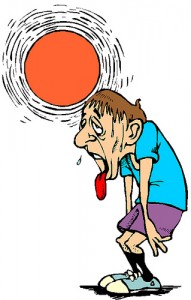If you’re like me and feeling extremely guilty about everything you ate at the Thanksgiving table, especially after touring all the restaurants you’ve been missing for three months, then you’re probably looking for a way to drop the extra calories faster than you put them on. Aside from trips to the gym and getting back to healthy eating, there are some ways that are known to burn some calories as an extra boost. I have heard many rumors about both coffee and tea (specifically green tea) that are related to weight loss and burning calories. So, which is the better one to choose?
It is often said that green tea does numerous wonders for your body, but is well-known for its ability to reduce belly fat and burn calories. Coffee is best known for the boost it gives you and keeping you awake through the rough days, and also has a reputation for burning calories, if it is served black. So the question is, which one is the best option when you are trying to lose some extra weight? This article explains that coffee does not directly burn fat and calories when you consume it, but it does curb your appetite in its tracks. By making you less hungry, it helps prevent weight gain by stopping the temptation to eat fattening foods. So, coffee does not exactly cause weight loss, but instead prevents it from happening. Tea, on the other hand, works a little differently. The antioxidants and compounds boost the fat burning hormones in the body, which start the process of breaking down fat. It also increases the amount of norepinephrine in the body, which is an enzyme that signals to fat cells to break down fat. The more there is of this enzyme, the more fat will be broken down. So unlike coffee, when green tea enters your body, it is actually working at the fat stored inside.
After reading these two articles, I think that tea is probably the best option when it comes to losing weight. Coffee can certainly help, but it appears to be more of a preventative method rather than a solution. An experiment could certainly be done to test this; if enough people are gathered throughout different age groups and body types, we could split them in half and give one group black coffee and the other green tea. The results could show which group recorded the most weight loss or fat burned, by looking either at pounds or BMI. However, this cannot rule out reverse causation; what if people with faster metabolisms or more active people are drawn to drinking more tea, and heavier people are drawn to coffee? While this could be an issue in the experiment, I think it is definitely something worth testing out, as the results could be useful to countless people trying to shed the extra Thanksgiving weight.













